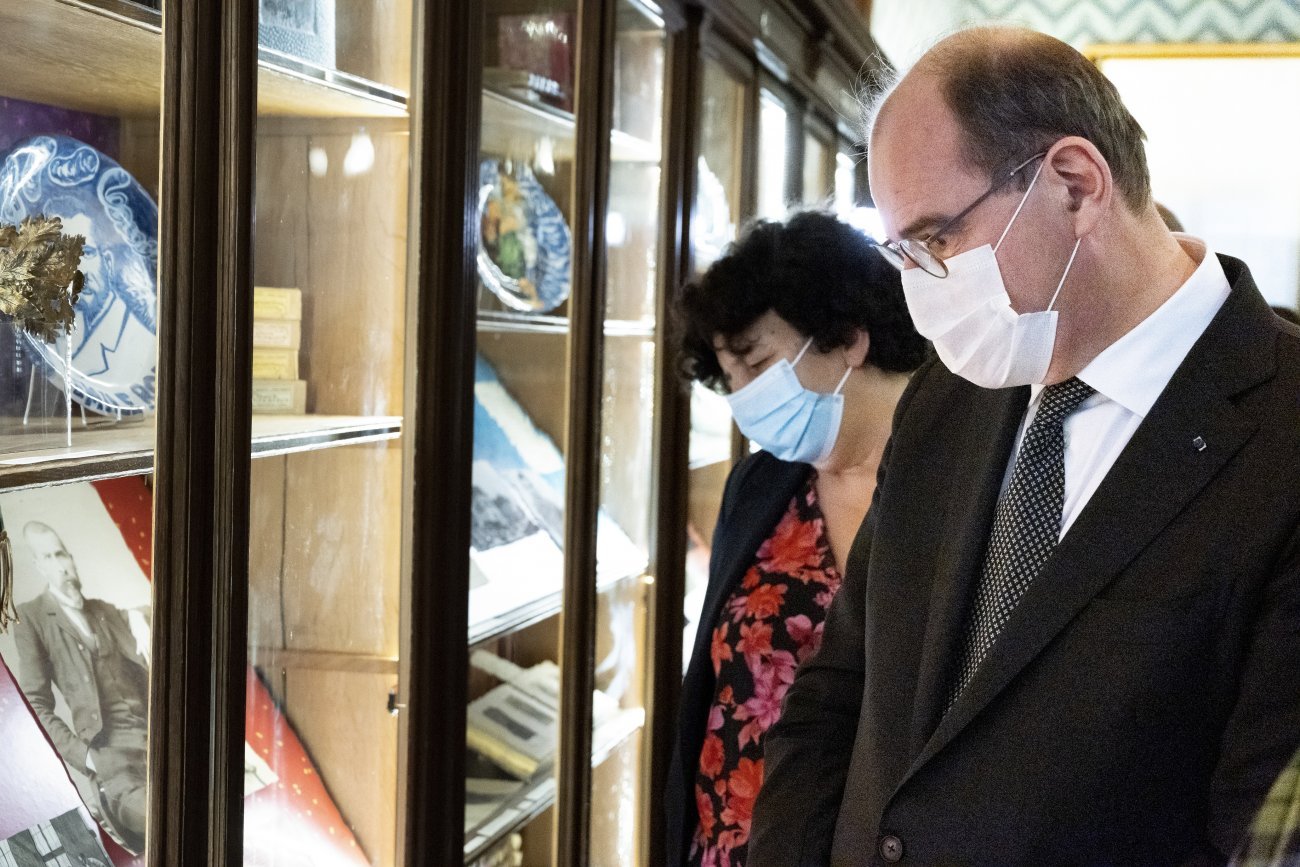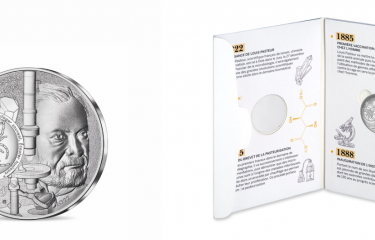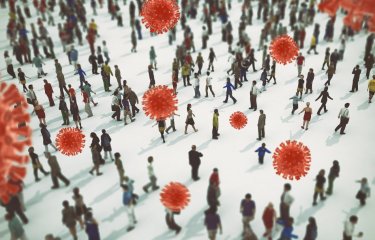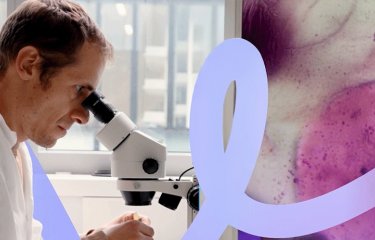French Prime Minister Jean Castex, accompanied by Frédérique Vidal, Minister of Higher Education, Research and Innovation, visited the Institut Pasteur on Monday January 10, 2022, to salute the efforts of scientists in the ongoing battle against COVID-19. The visit was an opportunity to highlight the need to strengthen preparedness for future emerging diseases. It was also an auspicious moment to launch the commemoration of the bicentenary of Louis Pasteur's birth in 2022.
French Prime Minister Jean Castex visited the Institut Pasteur on Monday January 10, accompanied by Frédérique Vidal, Minister of Higher Education, Research and Innovation, to talk to some of the scientists engaged in the response to the COVID-19 epidemic and to meet other teams involved in advancing research on infectious diseases such as shigellosis. Research on emerging infectious diseases is one of the priority scientific areas in the Institut Pasteur's 2019-2023 Strategic Plan.
As well as Jean Castex and Frédérique Vidal, the delegation also included a number of other prominent figures: Marie Silin (MP for the 12th electoral constituency of Paris), Claire Giry (Director-General for Research and Innovation in the Ministry of Higher Education, Research and Innovation), Emmanuel Grégoire (First Deputy Mayor of Paris), Philippe Goujon (Mayor of the 15th arrondissement of Paris) and Marc Guillaume (Prefect of Paris and the Greater Paris region).
The delegation was welcomed by Christian Vigouroux, Chairman of the Institut Pasteur Board of Governors, and Stewart Cole, President of the Institut Pasteur, and by several members of the Senior Management Board, and was then taken to meet a number of scientists: Sylvie Van der Werf (National Reference Center for Respiratory Viruses), Olivier Schwartz (Virus and Immunity Unit) and Cyril Planchais (Humoral Immunology laboratory). This part of the visit highlighted the Institut Pasteur's contribution to French and international research in response to the COVID-19 crisis, in terms of both epidemiological surveillance and more basic research, with the aim of improving our understanding of the SARS-CoV-2 virus and the processes of immunity. The discussions also provided an opportunity to raise the issue of the development of prophylactic treatments for COVID-19, especially monoclonal antibodies.

An in-depth conversation which also involved Arnaud Fontanet (Epidemiology of Emerging Diseases Unit) and Simon Cauchemez (Mathematical Modeling of Infectious Diseases Unit) helped clarify the current epidemic situation and emphasized the importance of constructive cooperation and interactions between scientists, public health organizations and political authorities in managing this type of epidemic. This was also an opportunity to highlight to the Prime Minister how important it is to strengthen preparedness for future emerging diseases.

The delegation also spoke to Laurence Mulard, who presented the work being carried out by a team of scientists developing a vaccine candidate for shigellosis. Shigellosis kills hundreds of thousands of people worldwide every year, especially children under the age of 5 in Africa and South-East Asia.
Finally, Jean Castex and Frédérique Vidal visited the Salle des Actes and the Pasteur Museum, as well as the crypt where Louis and Marie Pasteur are buried, to find out more about the Institut Pasteur's historical heritage and the program of events planned throughout 2022 to celebrate the bicentenary of Louis Pasteur's birth.
The Salle des Actes is a place of major historical significance for the Institut Pasteur. It is where the official opening ceremony took place in 1888, and since then it has hosted countless meetings of governing bodies, receptions for major donors, conferences and functions. Back in 1887, the hall was originally intended to house the Institut Pasteur library. The Salle des Actes is still home to all the original double display cases, which are now used to showcase a series of items that once belonged to Louis Pasteur and to the most illustrious scientists that have contributed to the Institut Pasteur's work for more than 130 years, as well as souvenirs, medals, Nobel Prize certificates and testimonies from key figures from various eras.


200 years after the birth of Louis Pasteur, the Pasteurian Spirit lives on

Louis Pasteur was born on December 27, 1822 in Dole, in France's Jura region. Throughout 2022, the Institut Pasteur will be commemorating the 200th anniversary of the birth of its founder and celebrating the "Pasteurian Spirit." This Pasteurian Spirit is rooted in strong scientific and humanist values and fosters three main ambitions which for more than 130 years have served as a legacy, driving and inspiring staff at the Institut Pasteur and in the Pasteur Network: to understand the living world, to improve human health and to pass knowledge on to future generations.
Several scientists, artists, associations, local authorities and institutions will be taking this opportunity to showcase Louis Pasteur's legacy. The Institut de France (the French Academy of Sciences, the Académie française and "France Memory"), the Institut Pasteur, the French Academy of Medicine, the French Academy of Agriculture and the French Veterinary Academy, the École Normale Supérieure – PSL, the "La main à la pâte" Foundation, the Institut Pasteur de Lille and the University of Strasbourg have joined forces to commemorate the bicentenary.
For more information, please visit





